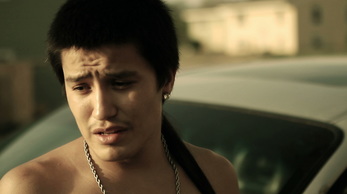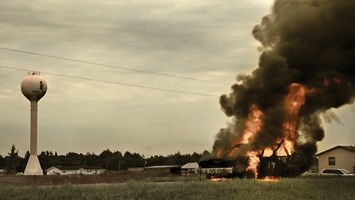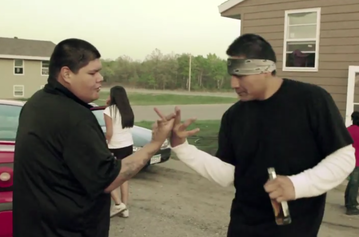
Culture.
It’s an important part of who we are. It comes from a long history bestowed onto us from our parents, their parents and so on. Culture is there as an amalgamation of the past and the present. It allows us to remember who we once were whilst still evolving to how the world is now. Culture is so fruitful and vibrant - each country has different subsections that gift our lives with this understanding and love. There are also bad cultures - drug, crime and violent groups that have perforated through history.

I’m starting this review as such because the terrifically astute and eye-opening documentary The Seventh Fire perhaps places the audience into a subsection of culture they simply forgot about - and allows them to understand the people in the heat of it all.
The Seventh Fire, directed by Jack Pettiebone Riccobono in his first feature, revolves around Rob Brown, a Native American gang leader who lives on a Minnsesota reservation and is facing his fifth stint in prison. As part of the Ojibwe community, he must come to terms with his responsibility and how he abused it, bringing a violent drug culture and introducing it to everyone he knows. Amongst the community is Kevin - a seventeen year old “protégé” who wants to be the biggest drug dealer, following in Rob’s path.

By no means is Jack Pettiebone Riccobono is wielding his camera to judge - this isn’t Benefit Street or Ross Kemp and Gangs (which, by the way, isn’t the metaphor I really wanted either but the first that came to mind). The director is aware of how easy it is to implement a story that causes you to tut or lament about the people at the centre of it - which is what steers away from. It's without a specific agenda other than to showcase the community of the Ojibwes honestly and with all their problems - self-inflicted or imposed. It’s with this narrative that The Seventh Fire opens to its audience and allows you to engage with Brown and Fineday and their whole community as observers rather than criticize. All the while, this does not silence your thoughts and you’ll leave mulling over the situations and the pseudo-gangsters who, in some way, try to immortalise pop culture icons (there’s even a Scarface poster above them at one point which is very indicative to how they believe their drug empire should’ve gone).
There are times where the film drags with no coherent aim, especially the beginning but as the real-life characters of Rob Brown and Kevin Fineday are introduced, the film comes into it's own. Without this conscious thought, it’s bloody difficult to ease yourself into it. However, when you do - the film burns with this story of almost redemption? Certainly it has this element of understanding and captures a piece of America which has never before seen on screen. And despite the issues here within the Ojibwes “tribe”, it is a film about humanity still and how, even now, it could thrive with hope once more.


 RSS Feed
RSS Feed
